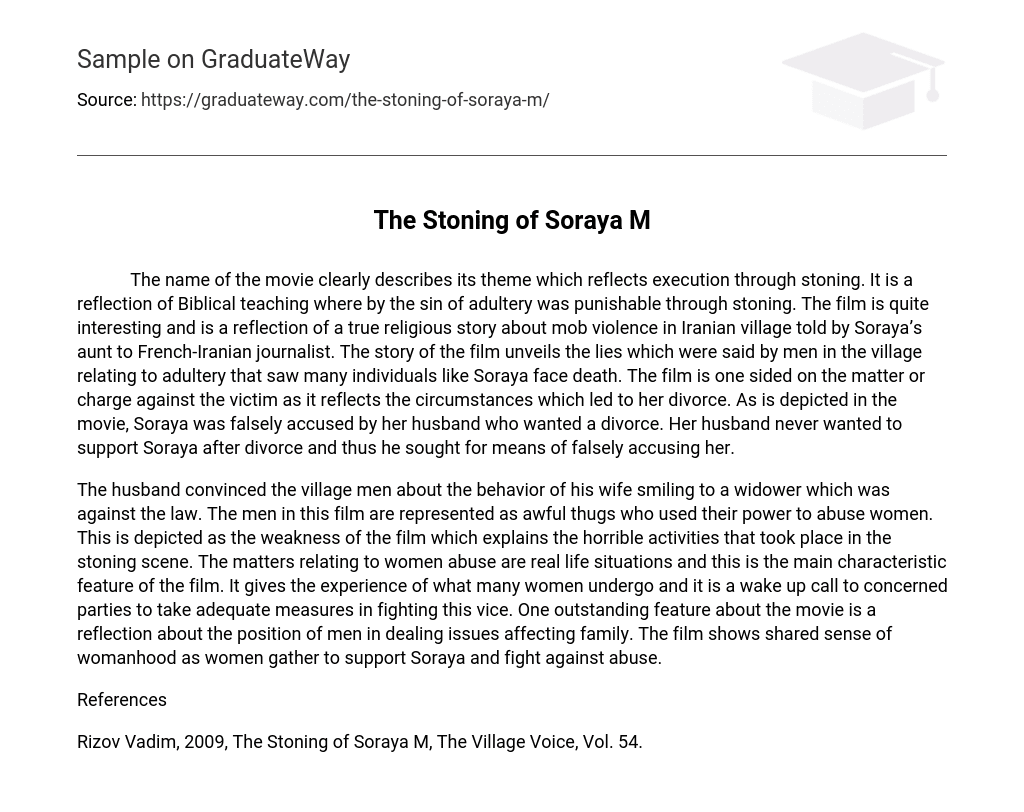The name of the movie clearly describes its theme which reflects execution through stoning. It is a reflection of Biblical teaching where by the sin of adultery was punishable through stoning. The film is quite interesting and is a reflection of a true religious story about mob violence in Iranian village told by Soraya’s aunt to French-Iranian journalist. The story of the film unveils the lies which were said by men in the village relating to adultery that saw many individuals like Soraya face death. The film is one sided on the matter or charge against the victim as it reflects the circumstances which led to her divorce. As is depicted in the movie, Soraya was falsely accused by her husband who wanted a divorce. Her husband never wanted to support Soraya after divorce and thus he sought for means of falsely accusing her.
The husband convinced the village men about the behavior of his wife smiling to a widower which was against the law. The men in this film are represented as awful thugs who used their power to abuse women. This is depicted as the weakness of the film which explains the horrible activities that took place in the stoning scene. The matters relating to women abuse are real life situations and this is the main characteristic feature of the film. It gives the experience of what many women undergo and it is a wake up call to concerned parties to take adequate measures in fighting this vice. One outstanding feature about the movie is a reflection about the position of men in dealing issues affecting family. The film shows shared sense of womanhood as women gather to support Soraya and fight against abuse.
References
Rizov Vadim, 2009, The Stoning of Soraya M, The Village Voice, Vol. 54.





